Aktivator
Active Loudspeaker Crossover
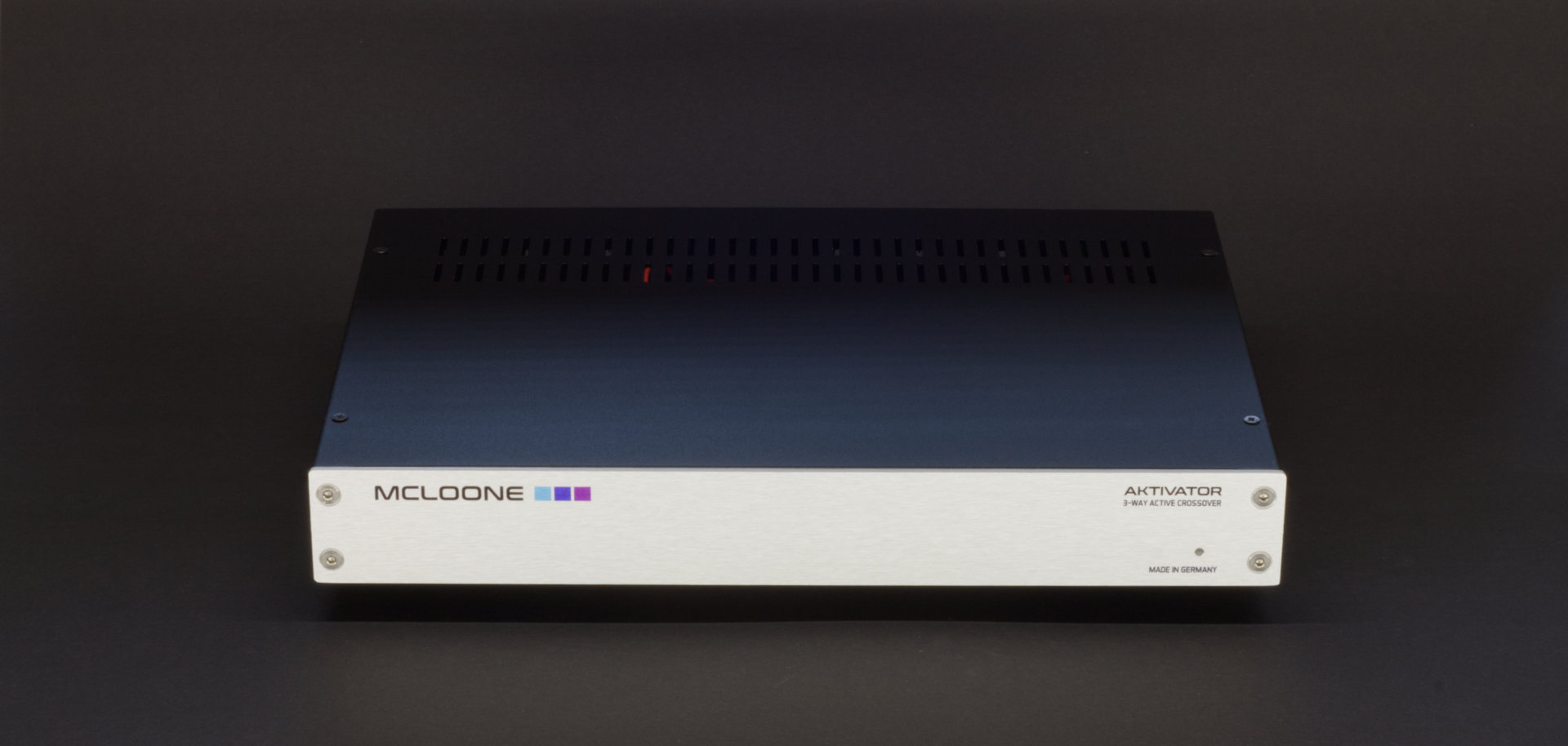
High-End 3-Way Active Cross-over
The Aktivator is a stereo active cross-over network. An incoming pair of audio sources are each split three ways and routed to the corresponding low, mid and high XLR outputs. These may then be routed directly to suitable amplifier channels.
-
An example where this may be used is to convert an existing (passive) loudspeaker system such as a hi-fi to an active system. This requires the addition of several channels of amplification as well as a cross-over network. The Aktivator is such a cross-over.
-
While there are many active cross-over systems available on the market, most are designed to have sweep-able cross-over frequency points. In doing so, a significant compromise must be made in the design. The left-right channel matching will suffer in such a system, since the significant (e.g. +/-20%) tolerance of the rotary potentiometers used will affect the analog filter.
-
Another approach is to use a DSP to split the audio source into it’s relevant frequency bands. This approach relies entirely not on the quality of the DSP itself but rather on the selection of the analogue to digital and digital to analogue converters used. There will inevitably be a compromise made due to the high cost of good converters. Added to this are the layout and supporting component requirements to obtain the best performance possible, which again will suffer due to cost and size considerations.
-
Hence the concept to build a high-end active cross-over with a zero compromise approach. No limit was set to board size, component size or power requirements. We are quite pleased with the results. We hope you are too.
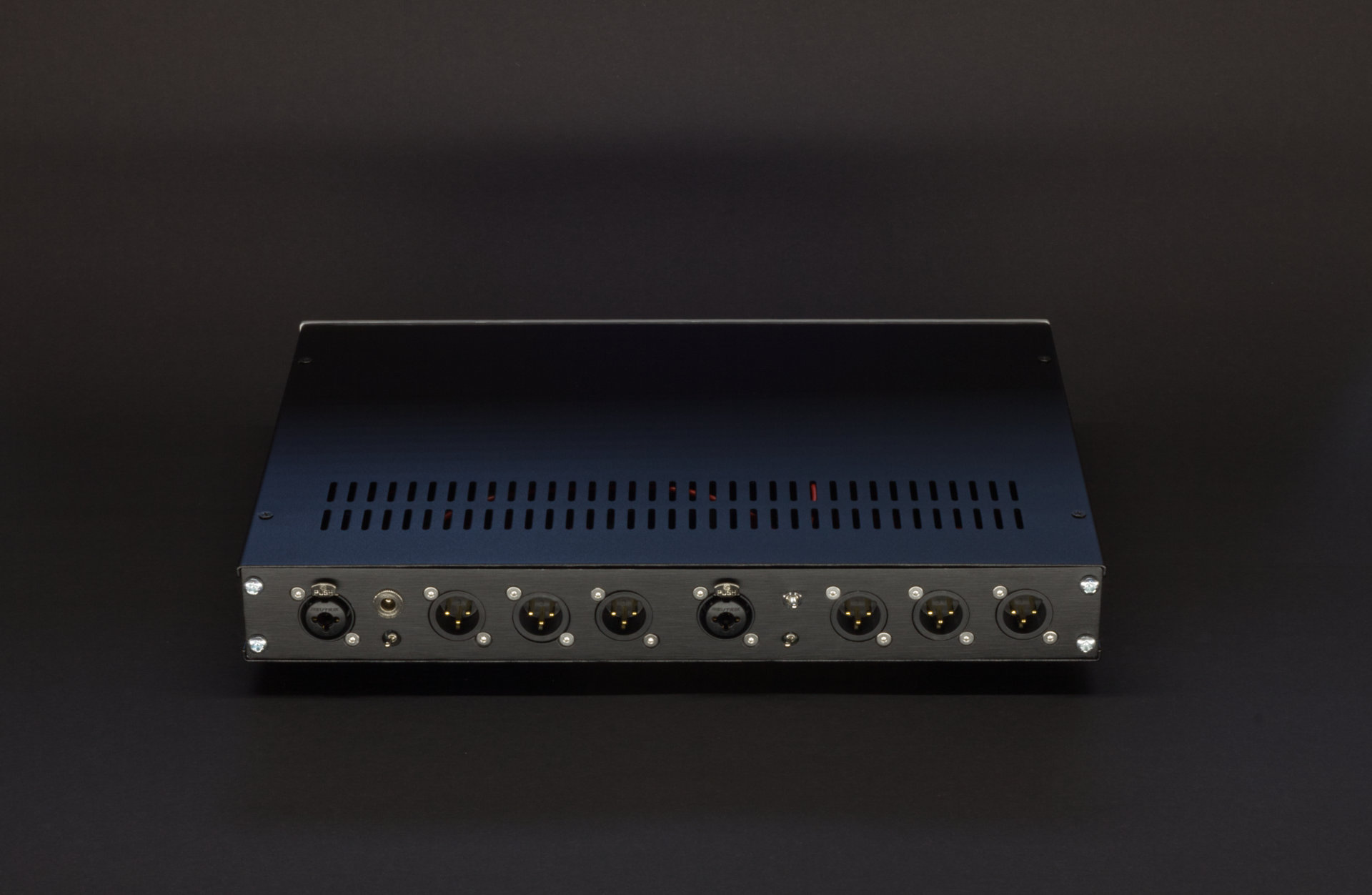
MADE IN GERMANY
All our products are entirely designed, assembled and tested in Berlin.
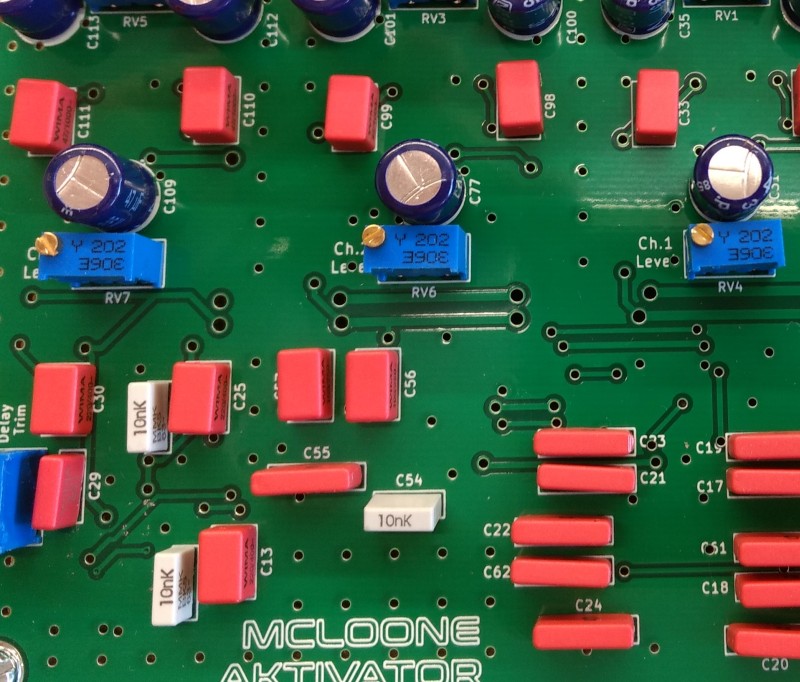
Custom Setup
The Aktivator high and low pass filters are set using fixed resistor and capacitors during manufacture. After ordering, please get in touch with us to discuss your requirements. If you are not sure, then we will be able to recommend suitable cross-over points based on the loudspeaker system and drivers you are using.
Several analog delay stages are included for the high (tweeter) channel. An internal precision rotary potentiometer allows for correct fine tuning during acoustical measurement.
All three channels feature internal precision potentiometers for individual attenuation and alignment of output levels, should this be required.
Polypropelene (PP) Film Capacitors
Second to none for their audio performance, film capacitors are however often overlooked due to their large physical size and high cost. Our target when designing the Aktivator was the simply the best performing filter possible. This resulted in a PCB size as well as component cost which is several orders of magnitude higher than many companies would have found acceptable.
The result is simply the best sounding product possible.
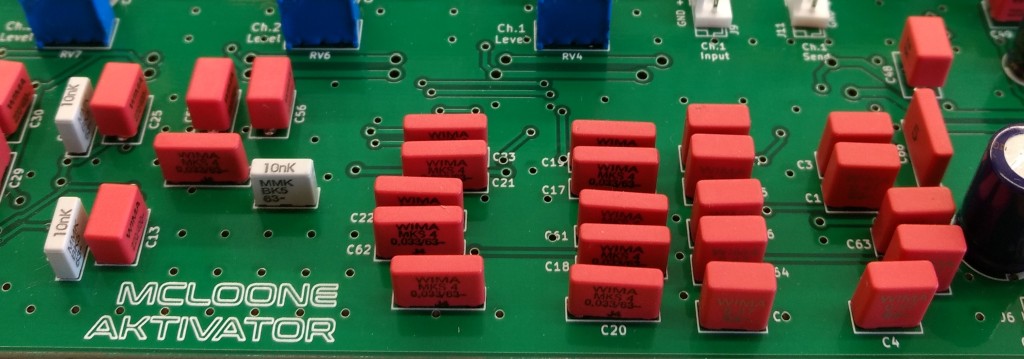
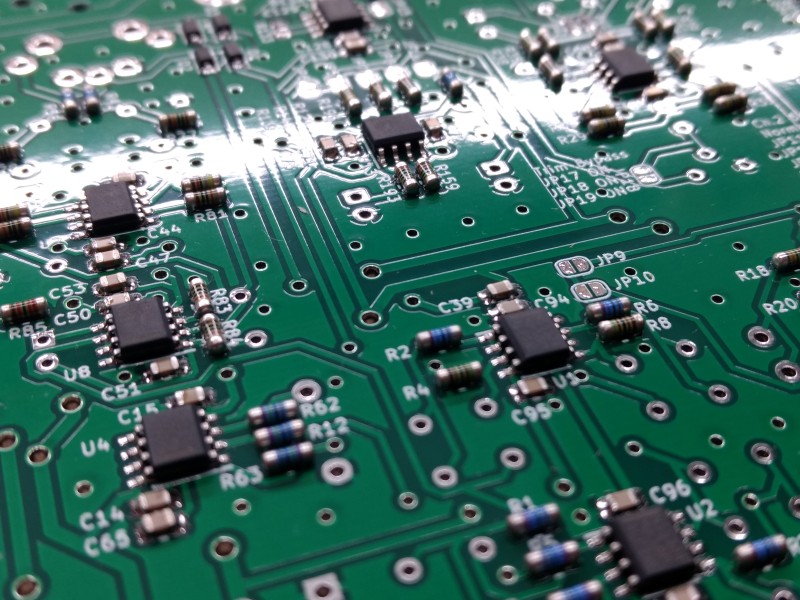
Metal Resistors
We selected only 1% metal resistors for each and every audio pathway of the Aktivator. Keeping the layout as tight as possible, we wanted surface mount components which in turn lead to using MELF resistors. The added expense and difficulty in manufacture translates to the best possible performance in the final product.
Steel & Aluminium Case
Not just a pretty sight, our aluminium profile housing allows for superb conduction of heat away from the internal voltage regulators. This over-dimensioned heatsink will preserve the functionality of the regulators for many years. In this case we are proud to say, we have no fans.

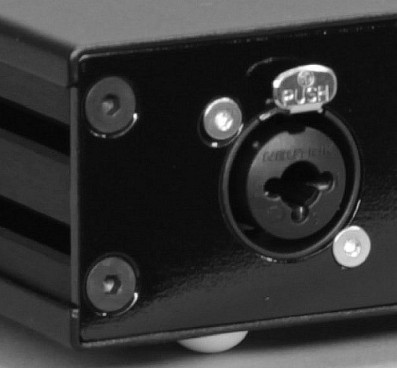
Fully Balanced & Unbalanced I/O
Due to the topology of the input and output circuits used, both balanced and unbalanced audio sources and destinations can be easily connected. The input jack is a combination XLR and 1/4” TRS jack, an unbalanced 1/4” TS cable or adaptor can be inserted here directly when connecting to unbalanced sources. The XLR outputs can be made unbalanced by connecting pin-3 to GND.
Note: Any combination of balanced or unbalanced input and output is possible using the correct adaptors.
COMPATIBILITY
Connects to virtually any line level source such as a DAC, audio interface, hi-fi preamplifier stage etc.
-
Any combination of balanced and unbalanced connections can be made using the relevant cabling
-
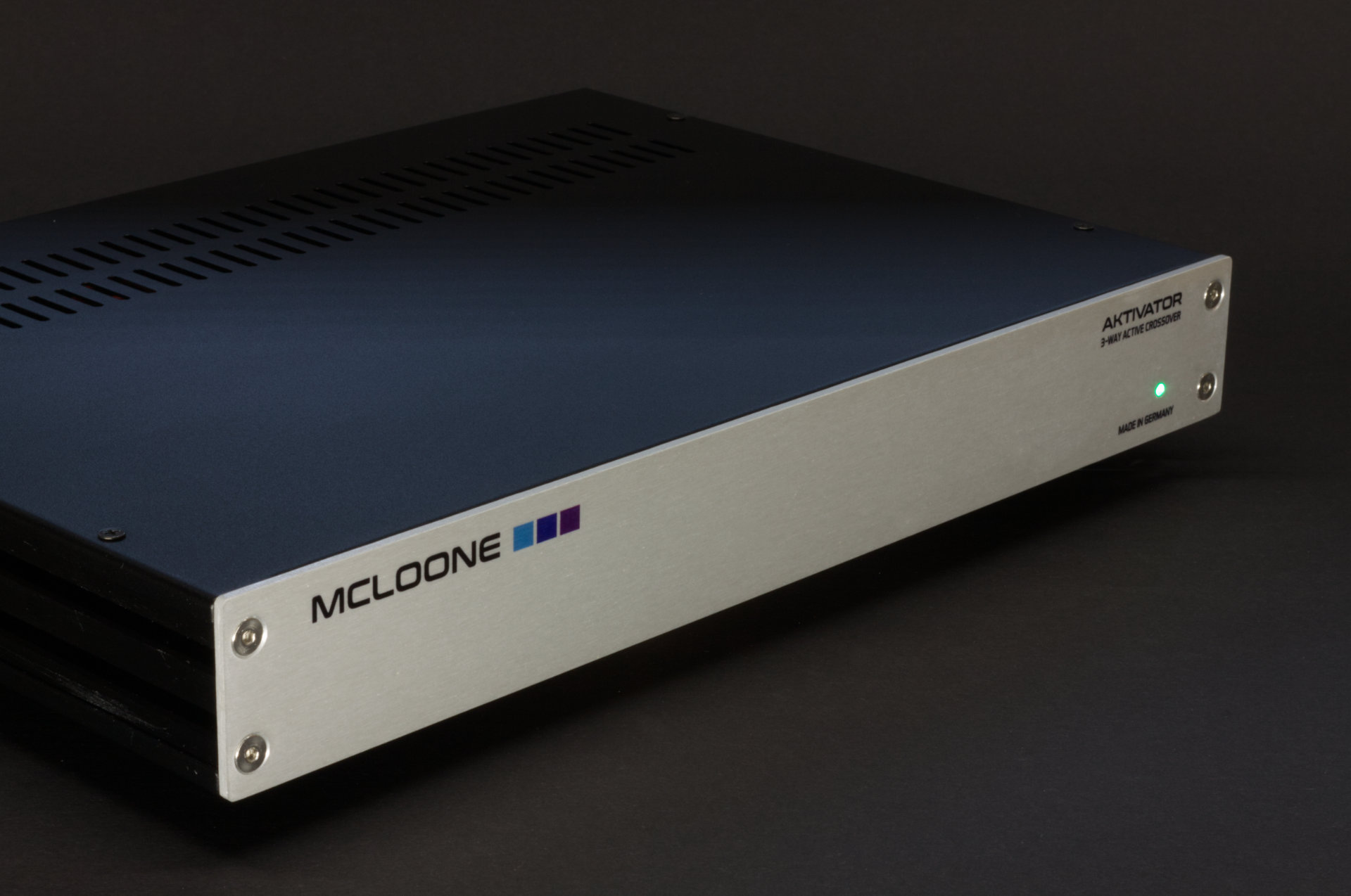
SPECIFICATION
0-90Hz
90Hz-2500Hz
2500Hz-40kHz
** Please specify your desired frequency ranges and/or gain setup after ordering **
